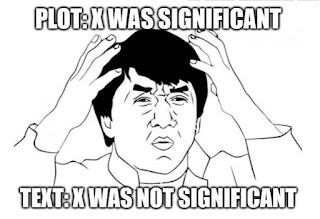The hardest part of writing is getting started.
It's exciting to be almost complete with Mod 1 (just the
mini-presentation left!). I enjoyed the module and learned a lot about DNA
damage and repair, experimental science, and scientific communication. Before
starting 20.109, I thought the main goal would be to learn a bunch of specific
wet-lab techniques that I could use in doing research. Now, however, I realize
that one of the most valuable parts of 20.109 is learning to synthesize results
from different experiments into a coherent narrative and to communicate that
narrative effectively to others. These are skills that will be essential in any
work that I do in the future.
For me, the most challenging part of any writing assignment
is getting started. I appreciated the daily assignments in 20.109 that forced
me to start different portions of the data summary earlier, even before we had
complete data. Completing these assignments made the task of completing a data
summary more of a concrete problem and less of a vague and scary task. My
favorite part was making figures, because it helped me break down our work into
individual experiments and consider what the result of each experiment could
mean, before synthesizing all the results. The portion that was hardest for me
to complete was connecting our work back to the big problems of public health
and cancer. These problems felt so enormous and our experiments seemed so small
that I sometimes struggled to show how we were making advancements without
overstating the implications of our experiments. However, this is how science
is done—one small step of the time, slowly chipping away at small pieces of a
problem that seem especially relevant or tractable, as a more and more
complete image emerges gradually over time.









Comments
Post a Comment